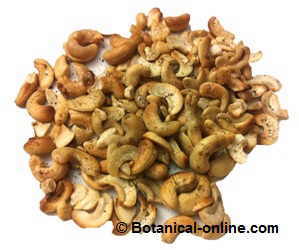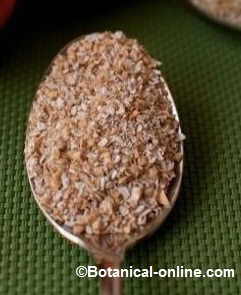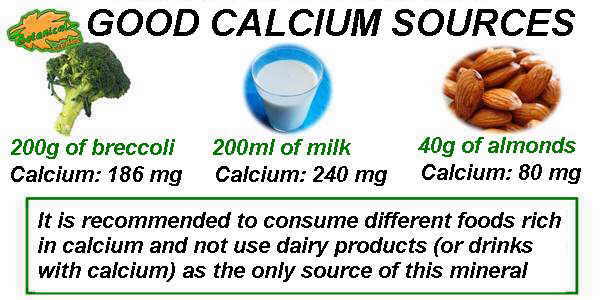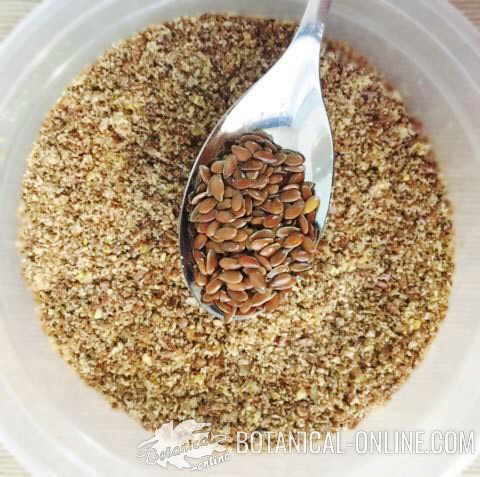Contents
Fructose or fruit sugar, what to choose?
BENEFITS OF FRUCTOSE
Fructose in the diet
Until recently, fructose was considered as a sugar, much “safer” than other simple sugars. According to this opinion, fructose produced little effect on the level of blood sugar and stimulated insulin production, so it was considered suitable for diabetics.
For this reason, it was advised for the diet of the people with diabetes and in the diets for losing weight. New studies have questioned the supposed advantages of fructose.
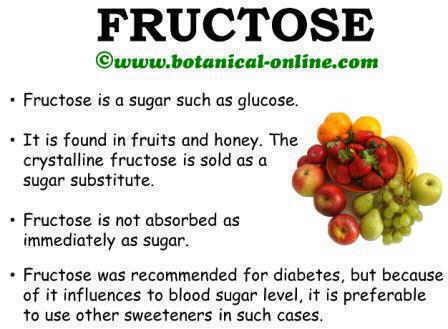 Properties of fructose
Properties of fructose
Fructose is good for diabetics?
According to recent studies conducted by the Center for Biomedical Research Network-Physiopathology of Obesity and Nutrition (CIBERobn) carried out on animals, prolonged intake of fructose in large amounts increases the body’s resistance to insulin and that favors the development of diabetes.
Other studies in the United States follow the same line. According to all of them, unlike with what was previously thought, fructose is more dangerous than glucose because it is able to neutralize the insulin that is what controls how the sugar is metabolized by the cells.
It can lead to the development of many metabolic diseases, including obesity, high blood cholesterol levels and triglycerides, and diabetes type 2.
All the studies have concluded that fructose is more dangerous when taken in liquid form that when ingested through fresh fruit. It is therefore not advisable to replace a piece of fruit for a fruit juice, and especially negative is the consumption of soft drinks sweetened with fructose or fructose-sweetened products.
The healthiest way to take fructose
Fructose found naturally in fruits is healthier than fructose crystallized sold. Refined fructose can be found in industrial juices, syrups, chocolate or other products.
Fruits are recommended because besides fructose, it contains fiber, vitamins and minerals that are essential for health. Its content of vitamins, fiber and water help to regulate the intestinal absorption of fructose.
However, people shouldn’t eat too much fruit or fruit juices because their intake can causes metabolic problems such as diabetes or obesity. (Recall that the rule to follow for the healthy population are five pieces of fruit and vegetables daily)
It is better to eat whole fruit over fruit juices. These are also suitable but more sparingly and always containing no added sugar.
* Related information: What foods contain fructose?
 Honey contains fructose.
Honey contains fructose.
Fructose and obesity
According to the last studies, the abundant and prolonged consumption of fructose makes the body more resistant to leptin, a hormone that controls the level of fat in the blood. Thus, the body is more prone to store fat that may develop overweight or obesity.
As we have seen previously, we must eat fruit but avoiding the abuse, because fruit, consumed in excess, is fattening.
Fructose, cholesterol and triglycerides
Similarly, there is evidence that excessive consumption of products containing fructose alters the metabolism of fats and may responsible for the decline in the good cholesterol (HDL) and the increase of the bad cholesterol (LDL). The daily consumption of substantial amounts of fructose has been related to the increase of triglycerides.
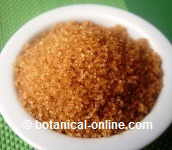
Table sugar is composed of glucose and fructose.
¿Fructose or sugar?
It is important to moderate the food consumption that contains simple sugars, as much fructose as table sugar (sucrose).
The lifted consumption of these products can be responsible, as we have seen previously, not only of the development of obesity, diabetes or triglycerides, but also of the appearance of other diseases like: Premature aging, heart diseases, osteoporosis, tooth decay, gingivitis, Crohn’s disease, ulcerative colitis, lower resistance to infectious diseases by weakening the immune system or general fatigue.
![]() More information on fructose.
More information on fructose.


